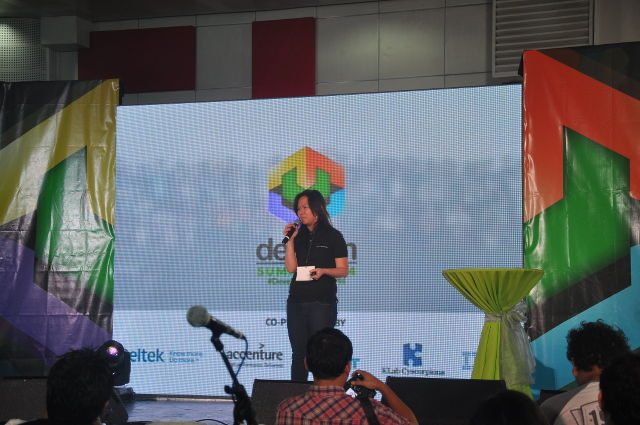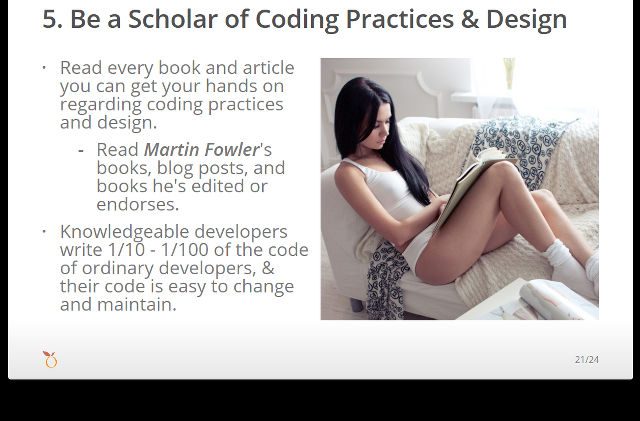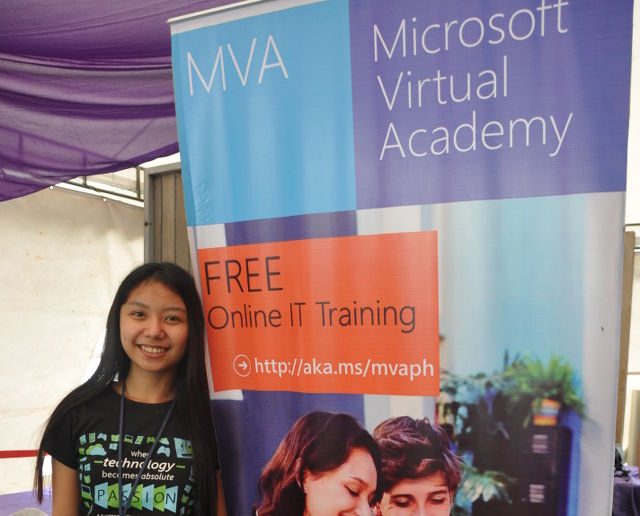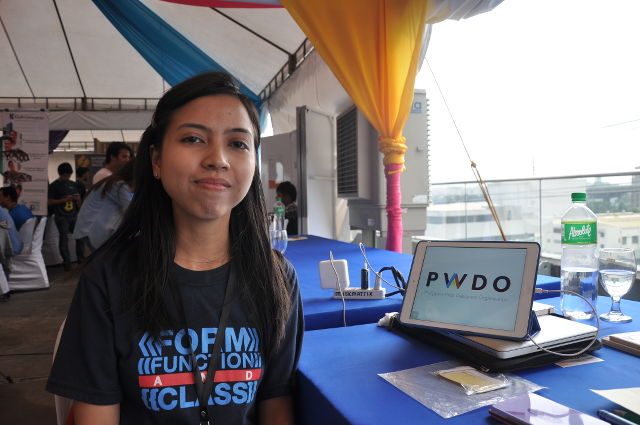SUMMARY
This is AI generated summarization, which may have errors. For context, always refer to the full article.

MANILA, Philippines – The Philippine IT industry is growing: at the recent Developers Connect Summit 2014, held last November 29 in The Tents at Alphaland Southgate, Makati, pretty much every speaker said “We’re hiring!”
But of all those jobs, how many would go to women? Among all the tech companies that were recruiting at DevCon 2014, how many of their current employees were women?
For 2014, the Philippines ranks ninth place in the World Economic Forum (WEF) Global Gender Gap Index. The WEF determines country rankings by measuring factors in four fundamental categories: Economic Participation and Opportunity, Educational Attainment, Health and Survival, and Political Empowerment.
The country scores 1 in both Educational Attainment and Health and Survival, but a dismal 17 (down from 10 in 2013) in Political Empowerment and 24 (down from last year’s 16) in Economic Participation and Opportunity.
Women: speakers or objects?
Unfortunately, this disparity—high educational attainment, low economic participation—was evident at DevCon 2014. While the audience seemed to be populated by an equal number of males and females, mostly students, the exhibitors’ booths were run primarily by males.
The program was male-dominated too: out of a total of 30 speakers in the entire program, only four were female. None of the female speakers were onstage to present their technical expertise; instead, they represented sponsor companies or developer communities.

There were a few times that women were mentioned in the presentations by male speakers. In the slideshow by keynote speaker Calen Legaspi of Orange and Bronze Software Labs, Inc. was a scantily clad girl sitting on a sofa, reading a book. The text of the slide was encouraging the audience to read up on code and design.
Japanese developer Tomonori Nishikawa talked about his company, KLab Cyscorpion, and two of their games. “LoveLive! School idol festival” featured sexy school girls, while “Red’s Revenge: The story behind the Little Red Riding Hood” highlighted a scheming anti-hero.
Only Jomar Tigcal from Google Developers Group mentioned any initiative to include women; he had one slide on GDG’s Women Techmakers events.
Women developers represent
Though they were noticeably invisible from the event program, there were more than a few females among the participants, the event volunteers and the exhibitors. A few of them talked about what it’s like to be a girl in the Pinoy tech world.
Kristina Divina Verbo, a Mozilla Representative in the Philippines and Associate Software Engineer at Accenture, said: “There were times when I was about to go out for job interviews, my parents and all of my relatives were saying, that’s for boys only, and it was kind of intimidating.” But her peers in the Mozilla Philippines community made her feel welcome.

Pierre Angelene Gutierrez, taking up BS Information Technology in De La Salle University-Dasmariñas, was recently hired as a Microsoft Student Partner. But initially, others were urging her towards a different course.
“Sinasabi ng iba dapat nag-Tourism na lang ako, or Psychology. Ako naman, gusto ko talaga mag-develop, kasi Web yung first love ko. Hindi ko na lang iniisip na ganito yung tingin nila sa kin. Basta kung ano yung gusto ko, na yun yon,” Gutierrez said. (They say I should have taken Tourism, or Psychology. For me, I really wanted to go into development, because the Web is my first love. I tried not to think about what they thought of me. What I want to do, that’s all that matters.)
In both her school and among the Microsoft Student Partners, boys outnumbered girls.
Carole Monteloyola, 29, has been fascinated with technology since high school. “I’m currently senior web developer here at Microsourcing. Since high school eto na yung gusto ko’ng gawin. Nung high school kasi, nag-start pa lang yung dial-up Internet, Edsamail, ang galing. Sa school din, yung friends ko, [contest] na OK, gawa tayo ng HTML page, pagandahan tayo ng design. Dun nag-start. Yung first job ko actually sa school din namin, hindi ako programmer, more on sa systems. Nagustuhan ko, kasi parang ang daming pwedeng gawin, ang daming opportunities, ang daming pwedeng aralin. Araw-araw ka may matututunan na bago.” (Since high school, this is what I wanted to do. In high school, when dial-up Internet began, I thought it was cool. We held contests in school to make the best-designed HTML page. That’s where it started. Actualy, my first job was in our school as well. I wasn’t a programmer, but rather on systems. I liked it because it seemed like there was so much I could do, there were many opportunities and chances to learn. I learned something new every day.)
Inspired and challenged by tech
Many women who work in the industry are not developers, but they’re intrigued by this work and challenged by its fast pace and rapid innovation. Alvina Consunto shares, “I’m working in KLab Cyscorpions as Public Relations Officer, and the reason why I want to work in this kind of industry is I find it very interesting, exciting, challenging. I’ve been here for seven months. I really love my work.”
Camill Vazquez, 27, works for Satoshi Citadel Industries, a Bitcoin company. “I work in Business Development, so we do all these events, we’re going around schools. I think it’s really interesting, I think it’s definitely where money is headed, especially since we’ve had all these innovations in technology that have drastically changed the industry, and I think one of the only industries that haven’t really been innovated upon is money. I’ve always been interested in tech but my background is in entrepreneurship, so this is different. It’s my first time in a tech company. I really enjoy it. Very fast-paced.”

Sophia Lucero, 29, is a freelance Web designer and one of the co-founders of Philippine Web Designers Organization. She explains, “I like the Web. It’s very democratic, very equalizing. It’s fast-paced and you can teach yourself. So if you want to learn something you go to the Web and learn something. And Web design is one of the things you can do with it. And when you have a website, it’s also very powerful because it’s how people learn. It’s information, it’s news, people can express themselves, can express their hobbies or share part of themselves, blog, everything. So I wanted to learn how to do that. And eventually that’s what I wanted to do for a living.” Though she hasn’t personally experienced any gender biases, she’s very aware of it—both locally and abroad.
Women in tech: the good and the bad
Lucero blogged about a local tech event where male organizers sent out a call for “females, ladies, girls” to join a tech meetup as usherettes or registration babes. A local developer summit released a poster filled with pictures of women in provocative poses and revealing attire.
She said via email, “The females in the thread didn’t even find it offensive. It is a concrete example that there is sexism and gender inequality in the tech community, and it is possibly even worse because it’s the kind that people don’t even feel or are aware is sexist.”
And then there’s GamerGate, which may have started as a discussion of gaming journalism, but escalated into a discussion of widespread online misogyny and “who is and is not allowed to have a voice in mainstream culture.”
But all is not lost. There are active efforts to be more inclusive. Ruby on Rails developers all over the world have a community for female developers called Rails Girls, and the Manila chapter was formed in 2012.
Though the local community hasn’t been very active, Rails Girls in Belgium, Taiwan, Slovenia, Brazil and other countries continue to hold events, workshops and gatherings. Worldwide, Google Developers Group (GDG) holds Women Techmakers events; GDG Philippines held one in Manila during the 2014 International Women’s Month.
If DevCon 2014 is to be indicative of gender gaps in the tech industry, then it shows that women can learn the tech, but they aren’t given opportunity to lead and to be role models. But more and more women are paying no heed to naysayers and simply pursuing careers in development and related fields.
With these women pushing ahead in the industry, perhaps future summits will have better gender ratios. – Rappler.com
Add a comment
How does this make you feel?
There are no comments yet. Add your comment to start the conversation.